
Elizabeth Warren's battle against paid political speech
With the 2020 elections drawing near, social media platforms are adjusting their policy for paid political advertising. Since social media platform Facebook has played an important role in Trump getting elected as President of the United States in 2016, concerns have arisen about social media potentially having too much influence on who will get elected in 2020. Democrat Elizabeth Warren, who is currently running for President, is a central figure in the battle against paid political advertising to stop it from influencing the 2020 elections with misinformation.
Warren's plan to break up big tech
Elizabeth Warren has been a Massachusetts senator since 2013 and is now a running Democrat for the 2020 elections. Central in her campaign are the U.S. rigged economic system and income inequality. The reason why this is central in her campaign is that she considers herself the defender of the middle class due to her own middle class upbringing in Oklahoma, in which she experienced her family being about to lose their home at one point. She argues that Washington is working great for the wealthy and the well-connected who have enough money to buy influence, while "America’s middle class is getting hollowed out".
Her main goal, if she wins the 2020 elections and becomes President, is mainly to strive towards ensuring equal opportunities for everyone and creating a government that works for the people instead of the other way around. A few of Warren's plans are ending Washington's corruption and strengthening America's democracy.
Warren explicitly plans to take on the problems faced with big tech concering the political influence that these market-dominant companies have.
Besides that, she also has plans to break up big tech and to curtail the political influence of market-dominant companies. Unlike many other 2020 candidates, Warren explicitly plans to take on the problems faced with big tech concerning the political influence that these market-dominant companies have. These plans are a result of the influence Facebook had in the elections of 2016.
In 2016, the consulting firm Cambridge Analytica worked for the Trump campaign harvesting personal data from people’s Facebook profiles and using this data for political advertising. The consulting firm had the ability to target particular groups which means that “the same blandishment can be dressed up in different language for different personalities, creating the impression of a candidate who connects with voters on an emotional level” (Hern, 2018). Because of the ability to monitor the effectiveness of the messaging of the ads on different kinds of users, the algorithms could be constantly updated, which improved the targeting on Facebook users.
These targeting features were one of the many reasons why Donald Trump got elected as President; his message appealed to many different people. Trump’s campaign was based on “big data” coming from market-dominant companies such as Facebook. By using this “big data”, they were able to microtarget pieces of the electorate and win these segments over (Bond & Exley, 2016). This type of targeting can be considered part of the small organizing done in Trump’s campaign (Bond & Exley, 2016).
Twitter versus Facebook
Facebook and Twitter allow politicians to control their own voice and message, but they are only in control within the formats of the social platform they are using (Maly, 2018). But Twitter and Facebook also allow politicians to bring their message across in different ways. Crucially, Twitter has decided to no longer allow political ads, while Facebook still does.
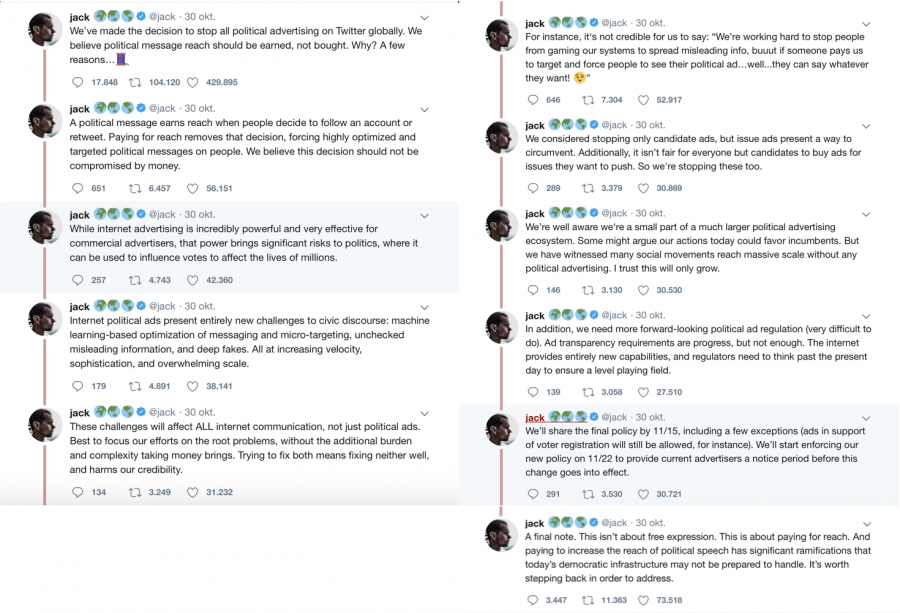
Figure 1. CEO Jack Dorsey's announcement of political ad ban
On October 30, 2019, Twitter’s CEO Jack Dorsey announced that Twitter will be banning all political ads. He announced this ban in a tweet thread (Figure 1), stating a few reasons why he decided to ban political advertising. He addresses the fact that paying for reach undermines the importance of people freely choosing to follow an account or not. He also states that political ads bring challenges that will affect all internet communication.
Dorsey concludes the thread arguing that the ban on political ads "isn't about free expression"; rather, it is about paying for reach. Paying for reach has many consequences; it gives the wealthy more power than others, which can result in them becoming the decision-makers of important matters.
Facebook is under pressure
Because of the influence Facebook (and Cambridge Analytica in turn) had on the election of Trump as President in 2016, Facebook is now under pressure to ban political ads as well. The social media platform is under fire because it allows politicians to lie in their ads and spread misinformation. But Facebook’s fundamental belief is that people should have the ability of freedom of expression.
Mark Zuckerberg states that Facebook’s policy is to not fact-check politicians’ speech. The reason for this is that Zuckerberg believes that in a democracy it is important for people themselves to see what politicians are saying and determine what is true and what is false. Facebook’s Vice President of Global Marketing Carolyn Everson, in an interview at Code Media 2019, also argued that Facebook should not be the arbiter of truth.
Since Facebook decided not to fact-check political ads, Warren responded by buying an ad on Facebook intentionally including false claims about Zuckerberg and President Trump.
Yet, not all Facebook employees agree with Zuckerberg’s decision to not take down misinformation. Hundreds of employees signed a letter to the leaders of Facebook, “decrying the company’s decision to let politicians post any claims they wanted – even false ones – in ads on the site”. In this letter, the employees stated that “[f]ree speech and paid speech are not the same thing”. They argued that Facebook’s current policy to not fact-check political ads does not protect voices, “but instead allows politicians to weaponize our platform by targeting people who believe that content posted by political figures is trustworthy”. The employees follow with proposals for the improvement of ad-related content. They suggest that there should be clearer policies for political ads, that targeting for political ads should be restricted, and that political ads should be easier to recognize for voters.
Elizabeth Warren's false political ad
Democrat Elizabeth Warren has raised the prospect of regulating Facebook and other big tech companies. Since Facebook decided not to fact-check political ads, Warren responded by buying an ad on Facebook intentionally including false claims about Zuckerberg and President Trump. Starting off with announcing the ad as "breaking news", the ad goes on to claim that Zuckerberg is endorsing President Trump’s re-election. Her goal was to stimulate Facebook to remove misinformation in political advertising on the medium. In a Twitter thread, Warren clarifies that she deliberately placed an ad including false information. In one of these tweets, Warren calls Facebook a “disinformation-for-profit machine”, for which Zuckerberg should be held accountable (Figure 2).
What we see here is that Warren surprises everyone and deliberately draws attention to this issue, thereby giving it a new life (Chadwick, Dennis & Smith, 2016). In fact, her action resulted in many media organizations and presidential candidates focusing on the problem. Warren also uses social media to shape the political discussion on Facebook's political advertising. When using these social media platforms, a politician requires constant judgment from advisors about which type of medium or combination of media is the most effective in shaping a political discussion or event (Chadwick, Dennis & Smith, 2016). Warren thus strategically uses her Twitter account to speak up about Facebook's policy instead of using Facebook itself, as that would contradict her stance against the platform still allowing political ads that spread misinformation.
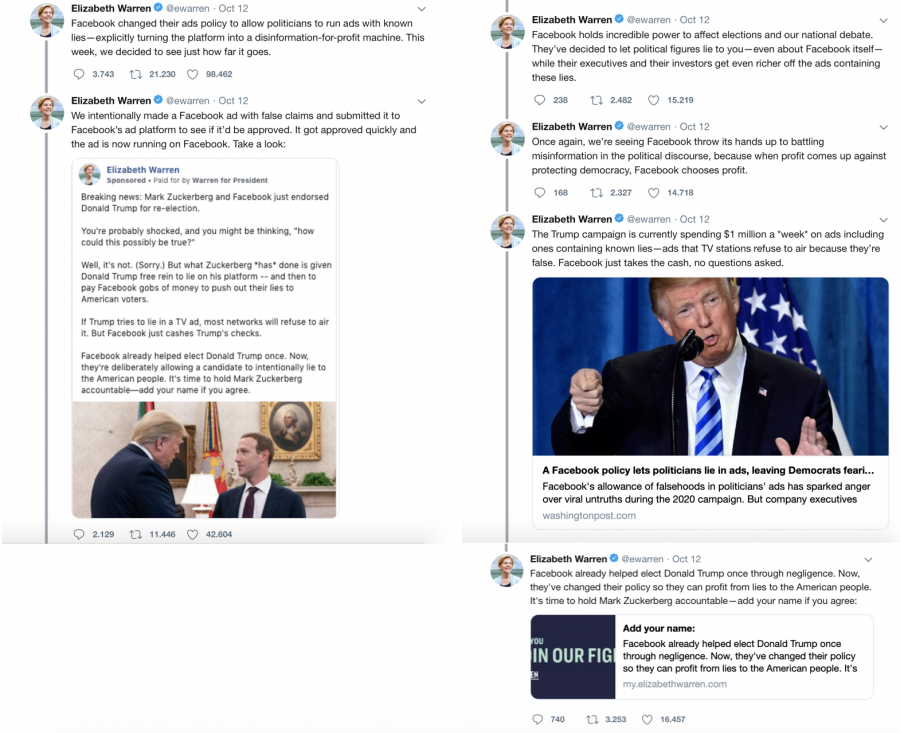
Figure 2. Warren's Facebook ad with false claims
It is no secret that Warren plans to break up market-dominant companies such as Facebook and Google. Because of this plan of hers, Facebook's CEO Mark Zuckerberg has said that her election would "suck" for Facebook. In a leaked audio recording from a meeting between Zuckerberg and Facebook employees, Zuckerberg was heard saying that the company "would sue if Ms. Warren were to enact the breakup plan as President". Warren responded to this in a tweet saying that it "sucks" - copying Zuckerberg's language - that we let market-dominant companies engage in illegal practices, not allowing for any competition from smaller companies, and thus fail to protect our democracy (Figure 3).
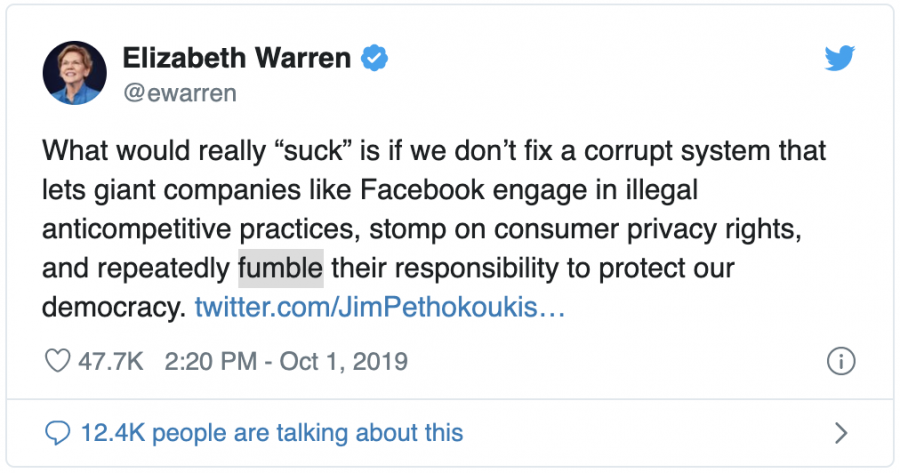
Figure 3. Elizabeth Warren responding to Facebook's CEO's statement
Tweets on Facebook's policy and CEO
Elizabeth Warren voices her stance and opinion on social media platforms such as Facebook and Twitter, but also uses TV ads, billboards, newspapers, and broadcasted debates to express her stance. She uses the hybrid media system optimally. Because breaking up big tech and reducing their political influence is part of her plans if she gets elected President in 2020, she expresses her opinion on Twitter with every little development concerning Facebook's paid political ads.

Figure 4. Elizabeth Warren on Facebook's major influence on politics and the elections
In her tweets, Warren articulates her opinion about Facebook's policy on political ads and the behavior that the issue brings about from Zuckerberg. In one of her tweets (Figure 4), she states that Zuckerberg has too much power and that Facebook has the ability to influence national debate and, ultimately, the elections. She questions his motives since he has had meetings with Trump in the White House and the subject of their conversations has not been made public. Crucially, after a meeting, Facebook changed its policy which now allows running political ads containing known lies. With this statement, Warren claims that Facebook, after helping Trump getting elected in 2016, is now taking steps to help one candidate mislead the people again. While helping one candidate - Trump - Facebook paints other candidates, especially Warren, as a threat to the company. Warren aims for accountability for social media platforms since they have a significant influence yet are not accountable for any of it (Figure 4). She presses on with her claim that Facebook is helping Trump in later tweets, saying that Facebook is accepting millions of dollars from Trump to run political ads including misinformation, ads that TV stations are not running because of the misinformation they spread.
Pointing to one of her main plans if she becomes the President, namely addressing the corruption in Washington, Warren also asserts that Zuckerberg is corrupt (Figure 5). She claims that the undisclosed dinner Zuckerberg and a Facebook board member who is a Trump donor had with President Trump is a clear example of the corruption in Washington. Through the example of this event, we see how Washington has been operating for the last couple of years: a government working for giant companies and the wealthy and well-connected (Figure 5). According to Warren's campaign, the government should be working for the people instead, which includes the middle and lower classes.
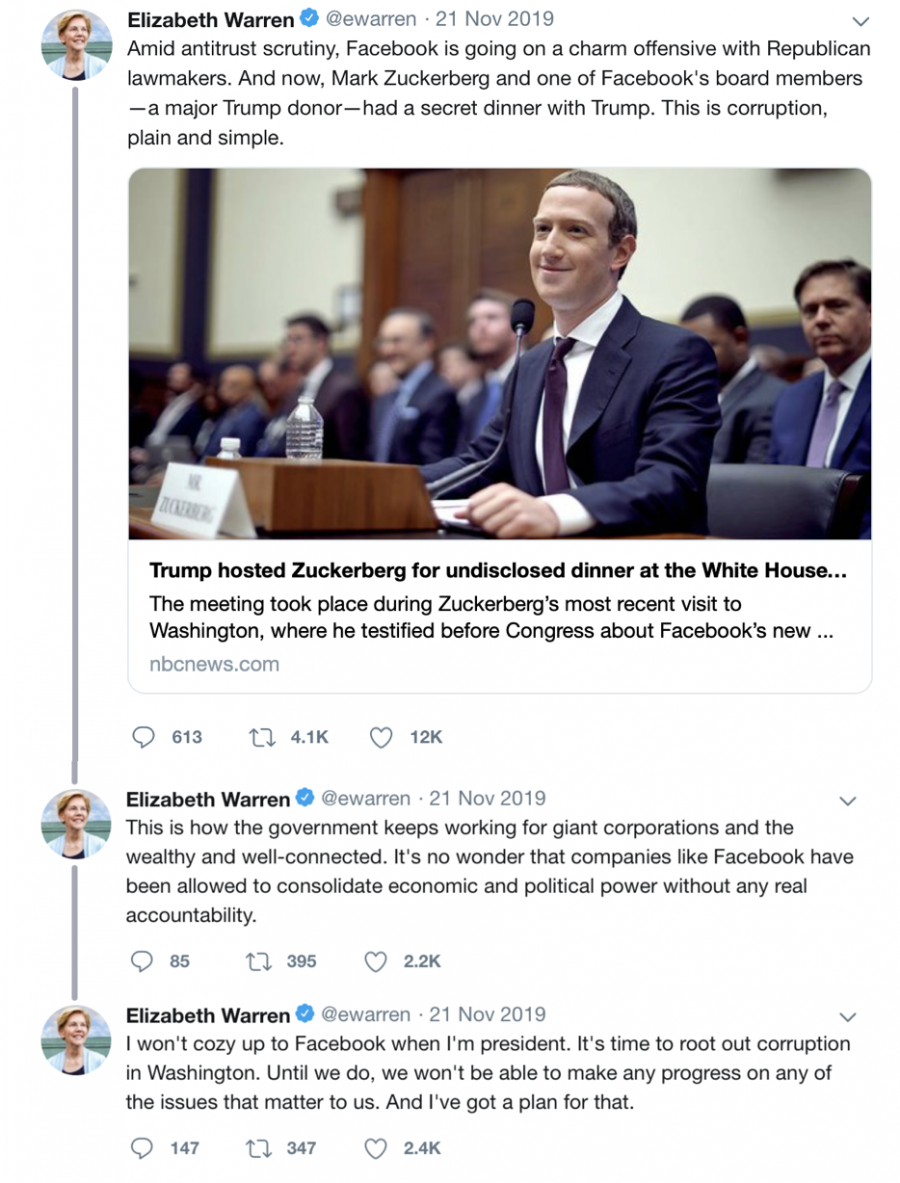
Figure 5. Warren on the corruption in Washington
On January 9, 2020, it became clear that Facebook was not going to limit political ad targeting or stop it from containing misinformation. Unlike Twitter and Google, Facebook continues to allow targeting on its platform. In Facebook's Newsroom, Facebook's Director of Product Management argues that Facebook has chosen to be more transparent and give people more control when it comes to political ads.
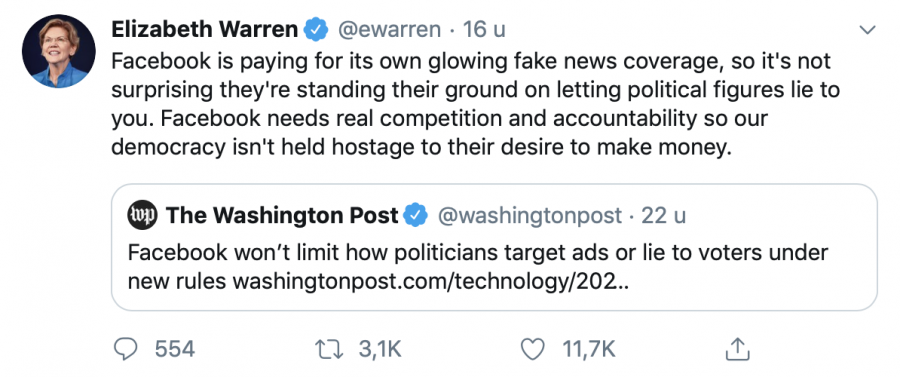
Figure 6. Warren on Facebook's decision not to ban political ads including misinformation
Of course, Elizabeth Warren responded to this news on Twitter (Figure 6). She argued that "Facebook is paying for its own glowing fake news coverage", which is why she thinks it is not surprising that they do not ban lies in political ads. In this tweet, again, she refers to her plans to break up big tech, allow for competition, and reduce social media's influence on politics if she gets elected.
In Warren's tweets about Facebook's policy and its CEO, we can see that she has a consistent opinion about the social media platform and the plans she has for regulating its impact if she gets elected. Her tweets on this topic are all related to the corruption in Washington, the immense influence of social media platforms on politics and the elections, the unaccountability of social media, and the issue of misinformation being spread through political ads (Figures 4, 5 & 6).
In her battle against Facebook, Warren comes off as having a strong point of view. Across her messages, it becomes clear that she wants to fight against Trump and the corrupt elite, and towards a healthy democracy.
What we can see in analyzing her tweets is that Warren is "on message". This means that she consistently communicates an aura that appeals to voters (Maly, 2019). Warren being on message means that she is able to communicate a consistent and consequential image to her addressed audience (Silverstein, 2003). She is consistently referring to the flaws of Facebook's policy, and what kinds of influence this has had and will have on the elections and America's democracy. In her battle against Facebook, Warren comes off as having a strong point of view. Across her messages, it becomes clear that she wants to fight against Trump and the corrupt elite, and towards a healthy democracy. What she communicates is that she wants to put an end to a government working only for the wealthy and well-connected (Figure 5). She explains this plan by expressing how she is going to do this; she plans to break up big tech to allow for more competition from smaller companies. She also wants to reduce the influence social media platforms have on politics by holding them accountable for their actions (Figures 4 & 5).
Breaking up big tech
Besides expressing herself on Twitter, Warren also brings her plans forward in broadcasted debates. During the Democratic presidential debate in Ohio on 15 October, candidates grappled with the issue of Facebook having too much power in a meaningful way for the first time.
The Democrats agree with the growing concerns over the power of big tech companies. Yet most of them do not think that allowing for more competition will solve all the problems. In the debate, Warren expresses that she does not want a few market-dominant companies to dominate our economy and our democracy. While Booker does agree that this is a threat to the economy, he disagrees with Warren's plan to breaking up specific tech companies. Also, O'Rourke suggested that it is not a good idea to target specific companies, yet he does see the need to set transparent rules that keep social media platforms from exploiting the public's trust.
Even though these plans to break up big tech are not seen as a priority by voters, they are important to the future of the American economy and democracy.
Warren responded to the other Democrats by saying that she is not taking any money from big tech or Wall Street executives. The reason for this is that she feels that she cannot go behind closed doors and take these executives' money and then turn around and make laws on big tech or Wall Street. Again, here we see how Warren is consistently on message; she is fighting for the common people, she is grassroots financed and thus she can fight Facebook.
Even though these plans to break up big tech are not seen as a priority by voters, they are important to the future of the American economy and democracy. Not breaking up big tech would have significant consequences for the economy because it would allow a few dominant companies to keep making a lot of profit that makes it hard for small businesses to compete.
The 2020 elections
Unlike Twitter and Google, Facebook has not yet changed its policy in order to ban all political advertising. Facebook still allows for misinformation about candidates to be spread across the internet. We have to wait for a while to see what kind of influence Facebook's current policy, allowing paid political advertising including misinformation, will mean for the 2020 elections. Will Trump be re-elected partly because of Facebook's influence on the elections just like in the 2016 elections? Or will someone else be elected despite (or because of) Facebook's unchanged policy?
We have to wait a few more months to see if Elizabeth Warren gets elected President of the United States in 2020, or if she even becomes the Democrats' nominee. If she does become President, we shall see what her plans on breaking up big tech and reducing its influence will really mean for companies such as Facebook. Over the last couple of years, our personal data on social media has been sold to third parties for profit. Transparency and accountability are key in the future of social media as regards both the use of our personal data for advertising as well as political data.
We only have to wait a few months to see what the future of big tech companies like Facebook will hold.
References
Bond, B. & Exley, Z. (2016). Introduction: Why Big Organizing. In Rules for Revolutionaries. How Big Organizing Can Change Everything (pp. 1-10). White River Junction, VT: Chelsea Green Publishing
Chadwick, A., Dennis, J. & Smith, A. (2016). Politics in the Age of Hybrid Media: Power, Systems, and Media. In A. Bruns, G. Enli, E. Skogerbo, A. Larsson & C. Christensen (Eds.), The Routledge Companion to Social Media and Politics (pp. 7-22). New York: Routledge
Maly, I. (2018). Populism as a mediatized communicative relation: The birth of algorithmic populism. Tilburg Papers in Culture Studies. nr. 213
Maly, I. (2019). Class 3: Message Politics, Lecture Notes, Digital Media and Politics, Tilburg University, delivered 12 September 2019.
Silverstein, M. (2003). Communicating the Message vs. Inhabiting “Message”. From Silverstein, M. Talking politics. The substance of Style From Abe to ‘W’